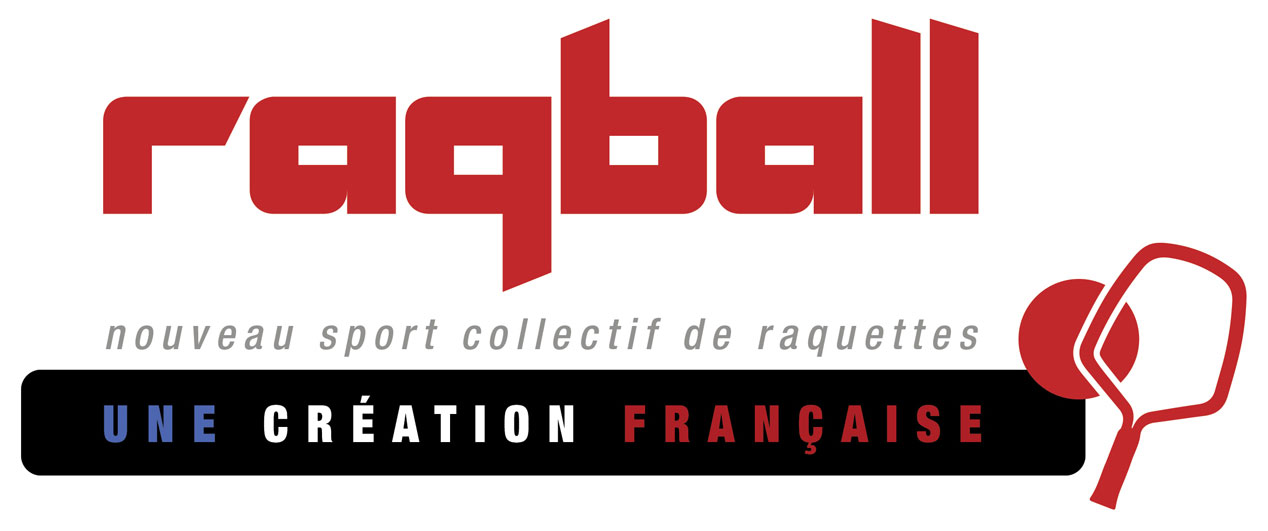Origins of Raqball
Origins of Raqball
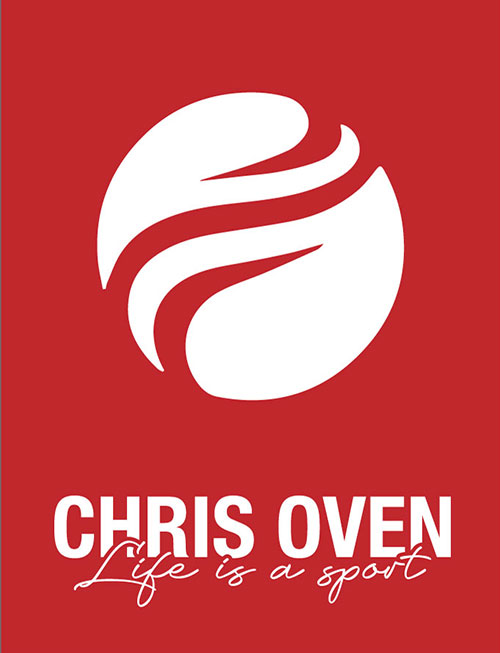
RAQBALL : New collective raqqet sport
Football, rugby, basketball, handball… At the beginning of all these sports we often find individual or group activities whose motivations are not always understood, and whose origins do not generally attract unanimous acceptance.
A little too much innovation arouses sometimes more mistrust than admiration.
And yet, it is these outstanding innovators who gave us the sports we all know today and that bind millions of people around the world.
When we look at it, we see that they often start in a similar way.
Football starts around 1860 on British grass fields, conceived by the London upper classes looking for an elite sport that will be practised by the well-to-do.
In 1891, a PE teacher in Massachusetts invents basketball to keep his pupils in good form during winter.
In 1898, haandbold is born, according to some historians, on a small pitch in Denmark.
In all cases, someone had an idea that was to change their own life, without thinking that it was also going to change the lives of millions of people. They will all form incredible teams. They will all think, experiment. And from their small labs will come rules, players, clubs, governing bodies, manufacturers of sport equipment and products and an economic activity in expansion today.
SPORT A MAINSTAY OF THE WORLD'S ECONOMY
A true engine of the economy, the sport sector generates around 2% of the world GDP (close to 1,200 billion euros)*.
Sustained by an ever-growing number of professionals, amateurs, charitable fund-raisers, and consumers more and more aware of the benefits of practising sport, this sector of the economy has seen a massive growth during the last 20 years. Its recorded growth rate of GDP is double of that of the overall world GDP.
The sport sector comprises three areas:
- Sport organisations and governing bodies (federations, clubs, leagues, unions…), which represent half of the sport market;
- Products associated with sport (equipment, associated products, specialist digital platforms), which represent 30% of the market;
- Sport marketing (sponsorship, events, ticket sales, trademarks and image rights, fan experiences…), which represents 20% of the market.
*Data from the Observatory of Sport Economy established in 2015 and attached to the French Ministry for Sports.
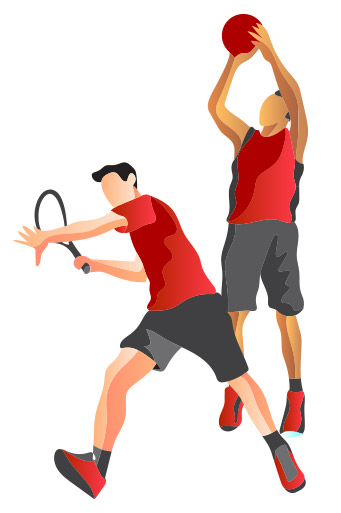
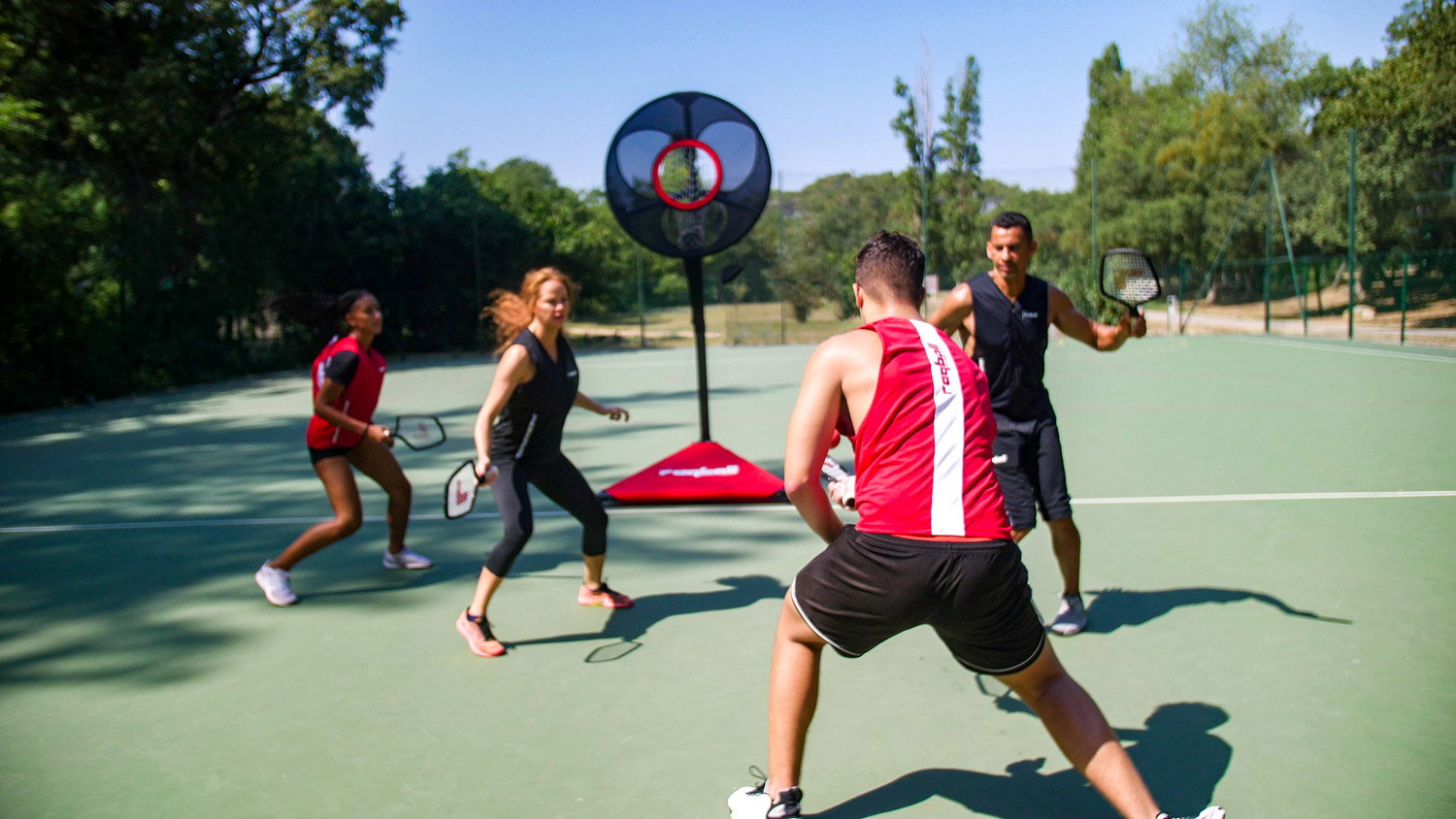
CONSUMERS LOOKING FOR NEW THINGS
As in their travelling habits or professional activity, those who practise sport today are not the same as those from days gone by. They evolve year on year, depending on their expectations and needs.
Many studies done recently have revealed certain trends:
- Introduction following the notion of healthy sport, which offers a true alternative to a sedentary lifestyle.
- Next, the new sport participant wants things to adapt to themselves, to the pace of their own life, and not the reverse (flexibility in the form of activity, times, setting, format…).
- In summary, there is a tendency towards new forms of sport, with a preference for sports that are more fun, outdoors, and closer to nature.
It is participation in sport in an informal manner.
raqball timeline
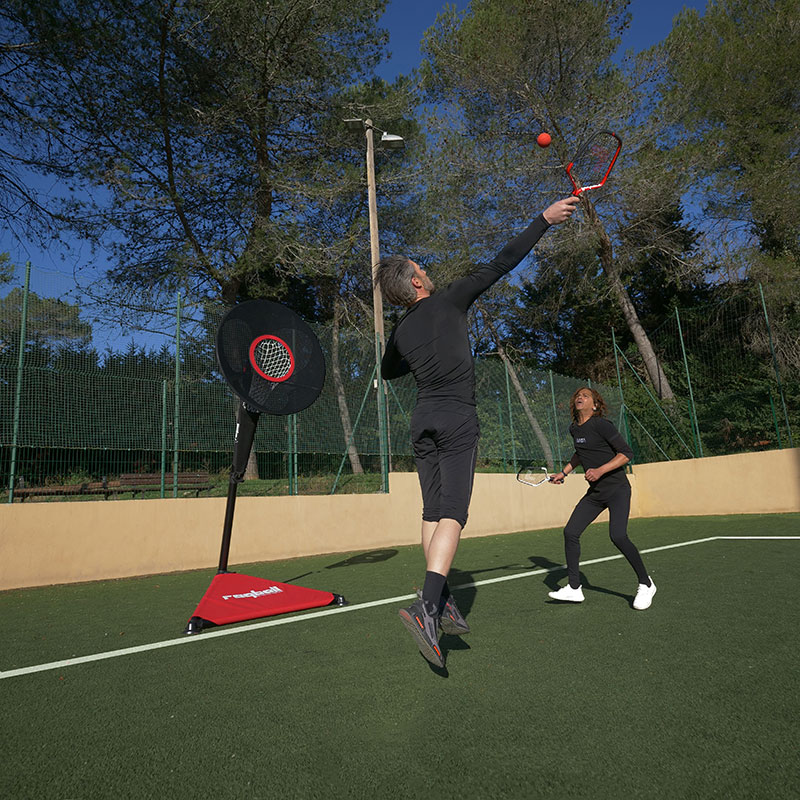
More than two years of hard work have been needed to develop this equipment unique in the world.
Team RAQBALL announce clearly their ambitions: make RAQBALL a sport recognised around the world and an Olympic discipline.
But for this, outstanding equipment is required. Equipment so advanced, that the R&D Department have had to test several versions and make various prototypes, before developing the model that would meet the required specifications: a full RAQBALL court equipment package that is portable, easy to install, of optimal quality, approved by the International Federation, usable by all, and at a reasonable cost.
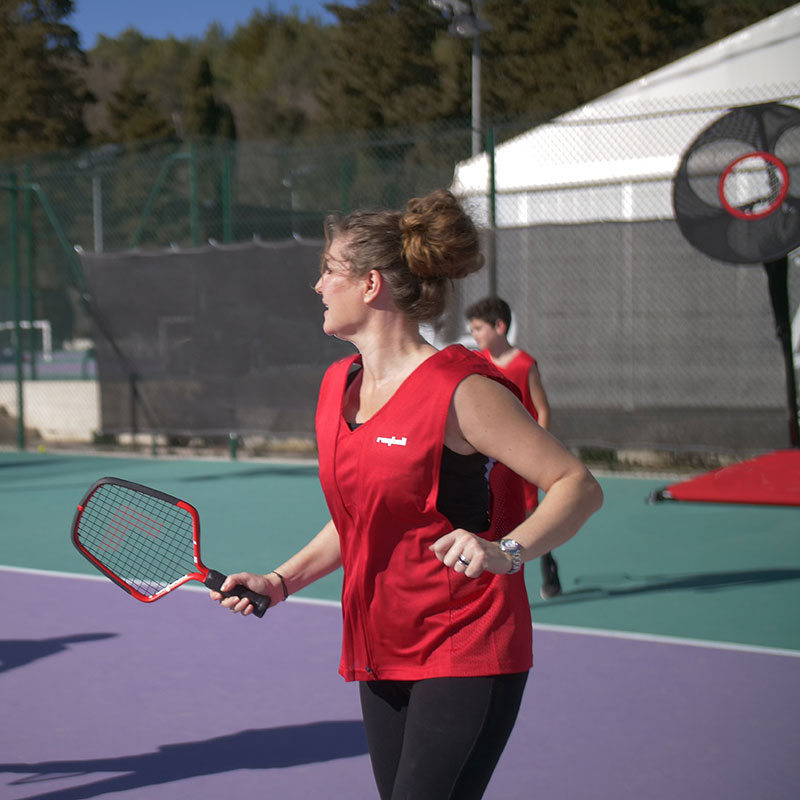
The F.F.R.B aims to organise, promote and develop the practice of RAQBALL in all its forms.
RAQBALL portable court equipment version RB1.2 kits are made available to the F.F.R.B by equipment supplier RZBALL COMPANY.
Its first president is Serge Morisot.

The aims of this body are to organise, manage, develop and promote the sport of RAQBALL, and to set the Rules of the Game at both national and international levels.
The International Federation controls and codifies RAQBALL, and recognises, through their affiliation, the continental and national federations and associations.
The first official rules of RAQBALL are filed at the Federal Court of Justice of Brussels.
Its first president is Manuel Dureuil.
The Team is formed.
Although he always followed Chris Oven’s project, it is in 2016 when Christophe Lehmann, known as Lem’s, joins the Team to add a new dimension to RAQBALL.
This business leader will create a structure that was missing with Chris Oven and binds a solid team comprising fifteen people with different profiles: former elite athletes, business managers, PE teachers, and engineers.
With their different backgrounds and multiple skills, the main players in this tight team will conceive and put in place a full structure to develop this new sport. Valérie and Aleksander Manhajm will take responsibility for commercial management and development of associated products. Thomas Clauss will be in charge of equipment design. Serge Morisot and Manuel Dureuil will take charge of developing the governing bodies of the sport.
For three years and with the support from BPI France, Région Sud Provence Alpes Côte-d’Azur and the European Investment Fund, Team RAQBALL works with passion to strengthen their know-how and skills. New talents join the original team and add their contribution to this exciting development.
Over several years, the inventor designs the equipment and fine-tunes his sporting innovation. The first rules are then established, and the game takes shape.
RAQBALL is launched in France in April 2013, in the town of Valbonne Sophia-Antipolis. It is the first of many events that will take place throughout France.
Aware of the importance of having the right people, Chris Oven forms a team that will drive the development of RAQBALL.
This is how in 2015 RAQBALL gets a crucial boost with a beIN SPORTS TV feature in L’expresso with Gérard Houllier.
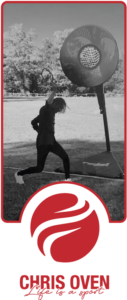
It is in the area of Mougins, in south-eastern France, where everything starts with Christophe Ouensou, known as Chris Oven. A sculptor, painter and visual artist, with a passion for sport and a restless spirit, he has a presence in creative circles. In his quest for innovation and driven by the practice of sport, he is constantly searching for new equipment, new activities, and new pleasures.
Chris Oven imagined a sport in which two teams play, racket in hand, with a ball. The players interact individually or collectively by making passes and dribbling, with the ultimate purpose of shooting at a target.
A NEW TEAM RACKET SPORT IS BORN
